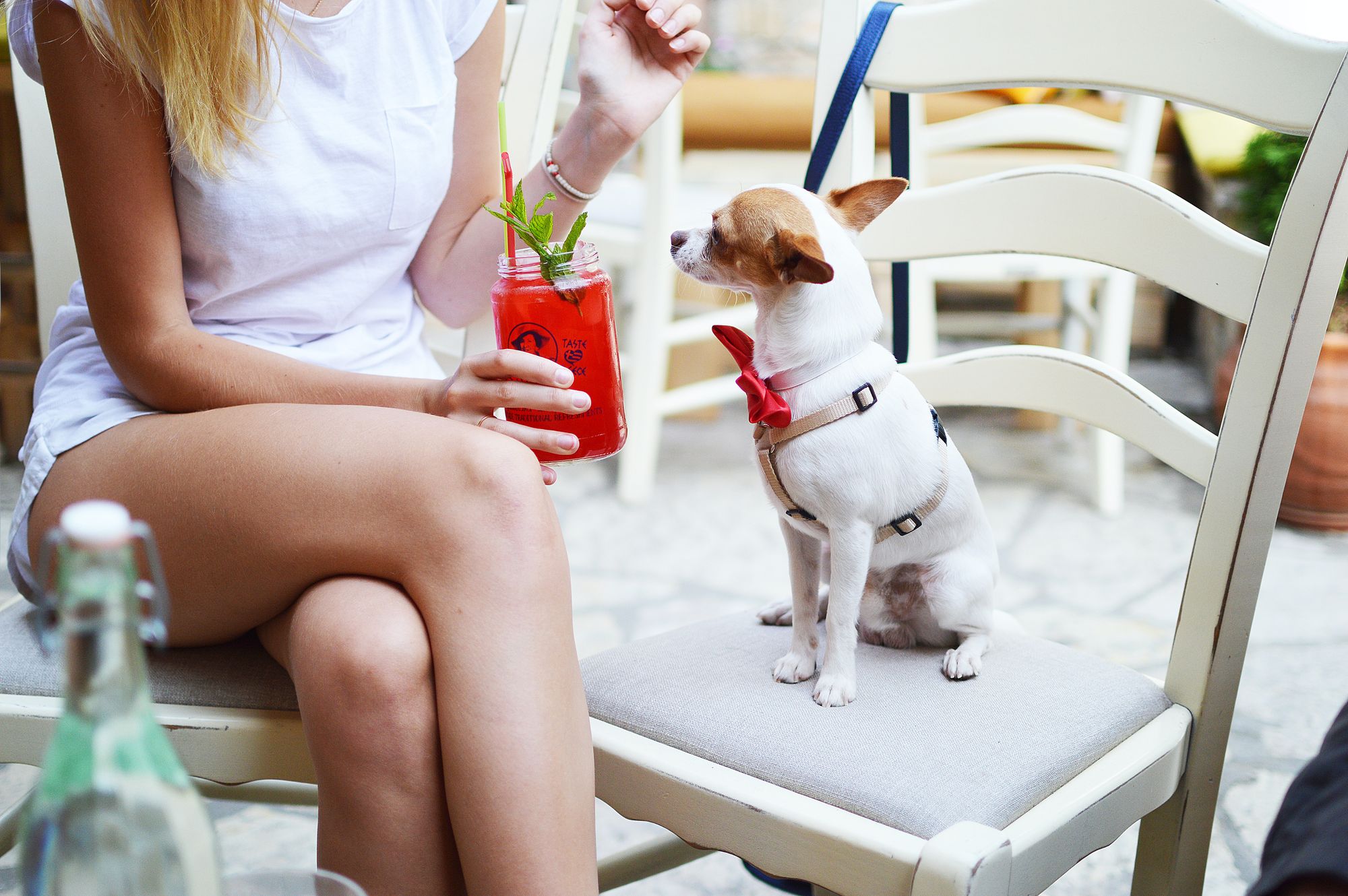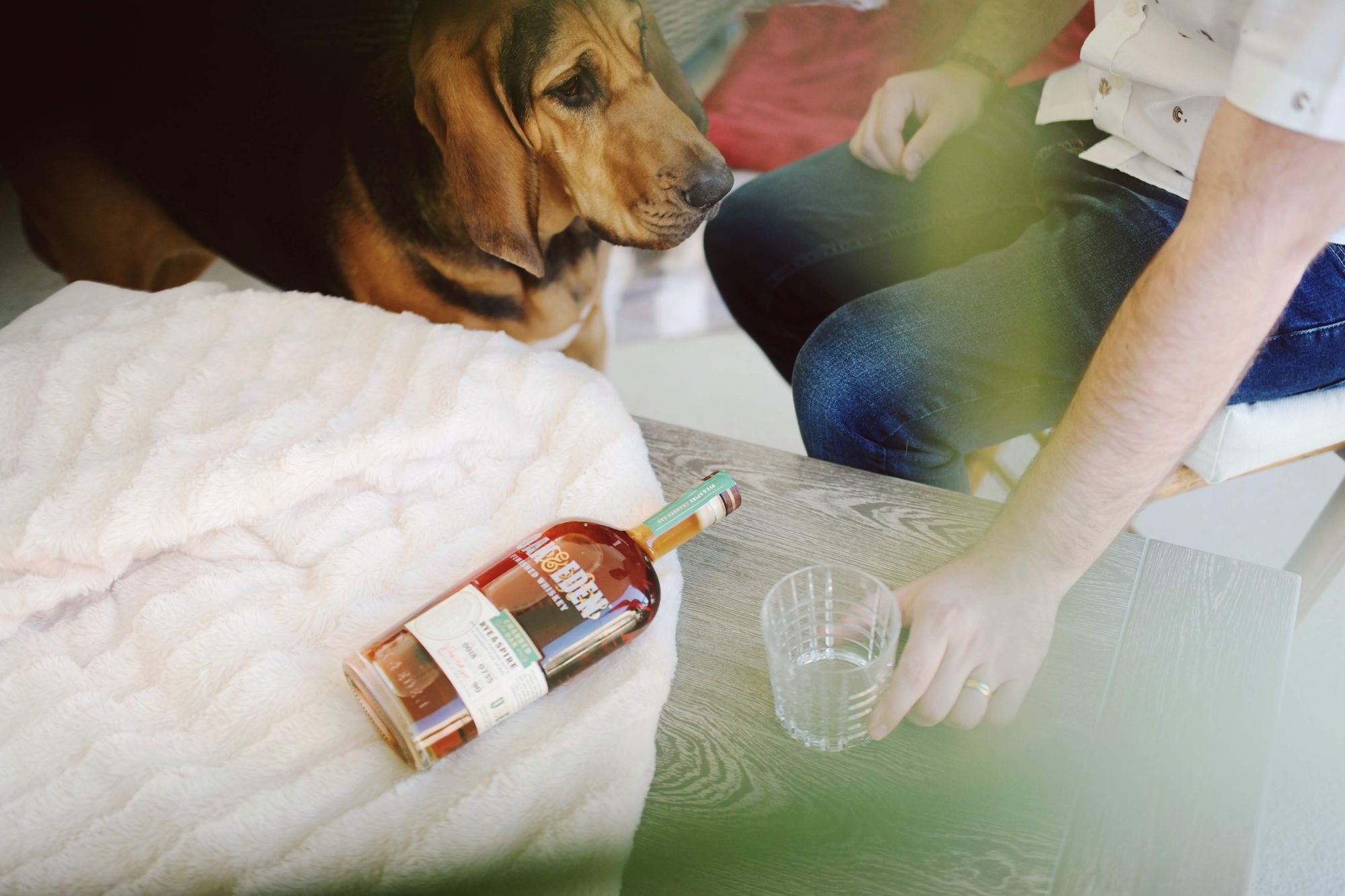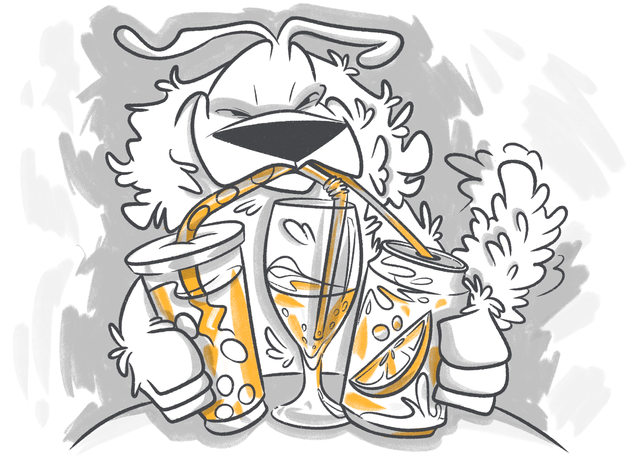Your dog should have a constant supply of clean, fresh drinking water, but that’s not the only thing they can drink. Count how many different drinks you have in a day: tea, coffee, water, juice, a glass of wine at the end of a hard day, etc.
Drinking water alone would soon get rather boring, don’t you think? It’s natural for dogs to drink water all the time, with nothing else, but if you want to give them a treat, these are all the things you should know. (And if you don’t know them, you might poison your pet.)
Stop Googling - Ask a Real Vet
Content:
- Can a Dog Drink Milk
- Can Dogs Have Non-Dairy Milk
- Can Dogs Have Coffee
- Can Dogs Drink Gatorade or Lemonade
- Can Dogs Have Juice
- Can Dogs Drink Tea
- Can Dogs Drink Alcohol
- Conclusion
Can a Dog Drink Milk
Many dogs are lactose intolerant, just as some people are, so not all dogs can drink milk. Dogs also can’t handle large amounts of milk and other dairy products, and they shouldn’t consume them every day. Their digestive systems just aren’t built for it. Milk contains considerable amounts of both natural sugars and fat, which is fine for your pet in moderation but can lead to weight gain, obesity, and the many issues that arise as a result of obesity.
The American Kennel Club recommends a few tablespoons of either goat's or cow’s milk now and then. If your dog has vomiting, diarrhea, or other negative side effects after consuming dairy products, do not feed them milk. Your pup is likely lactose intolerant. You can speak to your vet about performing diagnostic tests on your pet to confirm (or not).
Can Dogs Have Non-Dairy Milk
It is highly recommended to have a chat with your vet before adding any kind of dairy or non-dairy milk to your pet’s diet. Dogs can be allergic to many different things, and your vet can perform allergy-based diagnostic tests to determine your pet’s allergy status.
Plant-based milk products are often fortified with extra vitamins, minerals, and other nutrients, which can greatly benefit your pooch.
There are downsides to many non-dairy milks, however. Oat milk is high in fiber, which could cause constipation and other digestive or bowel issues. For this reason, a tablespoon or two is fine now and then, but too much will be problematic.
Almond milk is a great alternative, but it still comes with its fair share of problems. Digestive issues, such as diarrhea and vomiting, are common with pure almond milk. Glyphosate is found in herbicides, can contaminate almonds (and other foods), and is toxic for dogs. Organic almond milk products would be safer than their non-organic counterparts.
Soy or soy milk is high in calories and often sweetened with ingredients that are toxic for dogs. Soy allergies are common in dogs. The more your dog eats or drinks soy products, the higher the chances of an allergy materializing.
Hazelnut milk is potentially dangerous in substantial amounts, and it also has a high-calorie content.
Always check the ingredients of plant-based and non-dairy milk for ingredients such as:
- Xylitol, a toxic artificial sweetener;
- Other artificial sweeteners: toxic;
- High natural sugar content (toxic);
- Theobromine, in flavorings, is toxic.
Can Dogs Have Coffee
No, dogs cannot have coffee.
Under no circumstances should you let your dog have black tea, coffee of any form, or drinks with caffeine (including Coca-Cola), or chocolate because they all contain caffeine. Even decaffeinated coffee contains a small amount of caffeine. (I’m sorry if you didn’t know that already.)
Dogs are often much smaller than their human parents, which means a small amount of caffeine goes a long way and can cause considerable damage. Alongside raising their heart rate to a dangerous level, caffeine can result in dogs getting super-zoomies, experiencing cardiac arrhythmias, and suffering from diarrhea and/or vomiting.
Having a sip or two of your coffee isn’t likely to do too much damage, but if your pet has a heart problem, is senior, or has other underlying medical conditions, it’s best that you avoid giving your pet access to coffee and other caffeinated foods and drinks.
Read more: Why Does My Dog Drink So Much Water?
Can Dogs Drink Gatorade or Lemonade
High-sugar drinks are not suitable for dogs, so that means both lemonade and Gatorade are not safe for your pets. If you look closely at the bottle, you’ll see that the drink is pretty much all sugar.
Citric acid, found in lemons, is not safe for dogs. It can cause toxic poisoning, although most lemonades don’t contain the ingredient. Another toxic ingredient is lemon rind because it contains psoralen.
Keep an eye on your pet to ensure they don’t get the opportunity to drink or eat something that might be dangerous to them. You can keep a closer eye on things by investing in a camera, such as the Petcube Camera.

Can Dogs Have Juice
Dogs can have some juice; it all comes down to sugar content.
100% fruit juices are sometimes okay in small amounts, but it’s not a one-size-fits-all situation. Some dogs are fine with a little lick of orange juice, but it can cause diarrhea and vomiting in others.
Anything with grapes is off-limits. Those juicy little fruits are toxic to your four-legged friends.
If you want to incorporate more juice into your pet’s diet, speak to your vet and do it in a safe, approved way. For the most part, water and ‘complete’ dog food provide all the nutrients they’ll need.
Read more: How Long Can Dogs Go Without Food & Water
Can Dogs Drink Tea
Dogs cannot drink black tea. It’s dangerous in all the same ways that coffee and other caffeinated products are. And, again, even decaffeinated tea has some caffeine in it. Tea with milk (or milk substitutes) is also problematic.
Any tea with caffeine in it is bad news. This includes black tea, green tea (with caffeine), white tea, Earl Grey tea, and oolong tea.
Some herbal teas are safe for dogs, provided they contain no toxic ingredients (high sugar, Xylitol, caffeine, etc.), such as:
- Peppermint tea;
- Ginger tea;
- Chamomile tea;
- Rooibos tea;
- Echinacea tea.
You should not give your pet herbal tea, supplements, or other potentially life-altering or health-altering items without first speaking to a vet.
Read more: How to Get a Dog to Drink Water?
Can Dogs Drink Alcohol
Feeding dogs alcohol is animal abuse. It’s illegal to ‘spike’ your dog’s drink just as it is to ‘spike’ a human’s drink. Your pet cannot consent to partying the night away, and their bodies aren’t designed to handle alcohol. It will very likely end up being potentially deadly for your pet and costly for your bank balance. Life insurance and alternatives, such as the Petcube Emergency Fund, will not reimburse for illness or injury resulting from neglect, cruelty, or abuse.
Dogs have no way to process or metabolize those boozy beverages, so even the tiniest little drop has the potential to cause a life-threatening reaction. If you want to sit and have a beer with your pet, get a boozy beer for you and a pet-safe beer for them. They exist!

Conclusion
Your dog needs plenty of fresh, clean drinking water. That’s all. No more, no less.
Your vet will tell you if you need to add more vitamins, minerals, or other nutrients to your pet’s diet. If you aren’t sure whether or not your pet needs them, it’s not recommended to administer them. Overdosing a nutrient can be even more dangerous than having a deficiency.
Was this article helpful?
Help us make our articles even better









